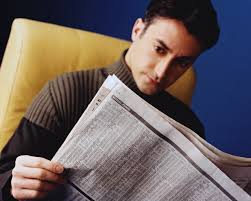Everyone experiences depression at some point in their lives. However, not every type of depression requires medication intervention. Learning to tell if your depression is situational or based on a chemical imbalance is very important. This article will help you to differentiate between the two types of depression.
Situational Depression – Seasonal Affective Disorder
 Situational depression can be defined as a sad response to something that happens in your life. For instance, if you lose something or someone important to you, it is a natural response to become down, sometimes even to the point where functioning in your day-to-day life becomes nearly impossible. However, this depressed mood tends to pass as time goes on. Again, this is a normal response to depressing situations.
Situational depression can be defined as a sad response to something that happens in your life. For instance, if you lose something or someone important to you, it is a natural response to become down, sometimes even to the point where functioning in your day-to-day life becomes nearly impossible. However, this depressed mood tends to pass as time goes on. Again, this is a normal response to depressing situations.
Chemical, or clinical, depression, is different. Clinical depression is caused by a chemical imbalance within the brain: namely, the brain’s axons are receiving a low level of neurotransmitters such as serotonin and dopamine. This type of depression can arise at any time and is typically not associated with a particular sad event.
Because situational depression is not based on chemical imbalances within the brain, anti-depressant medications (which aim to increase the brain’s neurotransmitters) are not effective for situational depression. Reiterating what was said before, situational depression tends to fade on its own, and time is the best medicine. Using medications can and will impact how the brain works and may actually cause a long-term depression if used inappropriately.
How to deal with situational depression
The only one who can truly know what he or she is going through is his or her self. When a person feels depressed, no matter what the reason, they will relate their feelings to their doctor. With limited information, a doctor may interpret the symptoms to be those of clinical depression and they will prescribe an anti-depressant, even if the person is dealing with situational depression. In addition, a lot of doctors are under pressure from their patients to provide them with a quick fix for their problems, and a lot of people equate that to prescribing medications. A third reason is that the majority of doctors that people see in regards to their depression are not psychiatric or psychological experts; in actuality, many people simply speak to their primary physician, who may not be well-versed enough in psychiatric issues to be able to distinguish between situational and clinical depression.
As mentioned earlier, time is an effective “cure” for situational depression. However, there are several “treatments” that one can engage in to help limit the impact of situational depression in the meantime. Pursuit of a hobby is important, as it helps to keep the brain distracted and focused on the more positive aspects of life. Having social support, especially from family and close friends, can help you remain grounded and positive, as well.
These strategies can also be effective for treating clinical depression, as well. At times, they’re enough to help a person regain normal levels of functioning and they do not need help from medications. However, for many people, they are effective coping skills that can be used in conjunction with medications to effectively treat major depression.
Knowing what type of depression you’re faced with will help you discover what methods of treatment would be most effective for you.